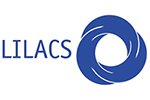ISSN Online: 2177-1235 | ISSN Print: 1983-5175
Editorial - Year2014 - Volume29 - Issue 4
The answer is, the training of a good plastic surgeon starts at home, as this is where moral traits and proper behavior are acquired, which will then be reflected in the surgeon's future medical personality. The home is where a person's ethical codes begin to form. The plastic surgeon needs to be a well-trained physician, have graduated from a good institution, and have a broad knowledge of all areas of general medicine. The plastic surgeon also needs to be a good general surgeon, with emergency care expertise, good manual skills, and proper knowledge of classical anatomy and specifics related to plastic surgery. Moreover, capabilities to improve surgical techniques, control surgical patients, and heal patients are necessary. The plastic surgeon needs to complete specialty training and acquire theoretical and practical knowledge on tissues, skin, vascularization and innervation, and existing surgical procedures and techniques as described in the literature, in order to apply them to clinical practice and choose the surgery that best meets the requirements and needs of the patient. Diagnosis and planning of the procedure are fundamental; however, although it is easier to do than knowing what to do. Therefore, a bit of creativity should be added to established procedures, but without considering the patient as a "noble soul" for research. It is necessary for the surgeon to know how to treat eventual complications and report his studies in specialized journals or books; therefore, it is even better if the surgeon would also serve as an investigator.
The surgeon should know the psychological behaviors of the patients and in particular the mind-body relation, as this would allow detecting changes and considering alternative treatments that are not necessarily surgical. "Plastic surgery is a surgery of the soul, and the surgeon should know beyond the anatomy and the procedure."
Moreover, and to meet all the requirements, the surgeon should know what is anatomically "beautiful" and compare this with what is considered not aesthetically pleasing. The plastic surgeon should know the symmetry, proportions, relief, and three-dimensional view of body shapes, in order to understand how to turn the "ugly" into something beautiful.
Before considering techniques and strategies, the surgeon should know "physical beauty anatomy" and the changes leading to "aesthetic/physical pathologies." This is the path of surgeons who will perform actual surgical treatment in patients and, in fact, the starting point for the definition of the surgeon's conduct and surgical plans, considered as the fundamental and complementary knowledge of plastic surgeons.
The plastic surgeon should know classical anatomy in order to carry out the surgical procedure, as well as know the "anatomy of beauty" and "pathologies of beauty" to be able to diagnose aesthetic changes.
Therefore, it takes time and exclusive commitment to learn and teach plastic surgery; otherwise, failures will always occur and then result in medical errors. Indeed, medical errors increase when the physician is not a specialist and is only focused on the financial gain-professional fee should be a consequence of the surgeon's work rather than the reason for it.
However, for socioeconomic reasons, this does not seem to be the right path to me.
Antonio Roberto Bozola
Regent of Plastic Surgery at the Faculty of Medicine of Rio Preto
 All scientific articles published at www.rbcp.org.br are licensed under a Creative Commons license
All scientific articles published at www.rbcp.org.br are licensed under a Creative Commons license






